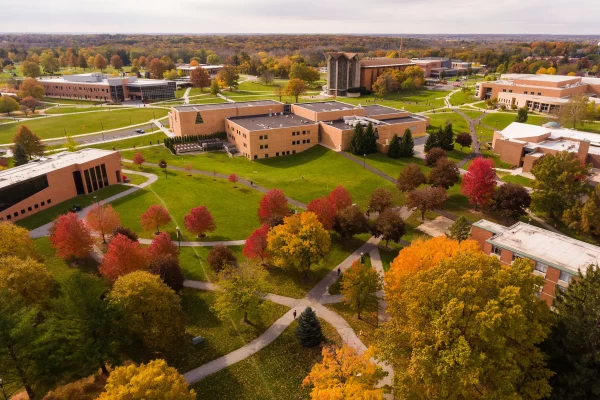A Scholarly Passion for Poetry
Associate professor of foreign languages and literatures Carlos Miguel-Pueyo recently travelled to El Bierzo, Spain to participate in the international conference, “Enrique Gil y Carrasco y el Romanticismo.” Sponsored by UNESCO and 27 other universities, this conference celebrated the 200th anniversary of the birth of Spanish Romantic author Enrique Gil y Carrasco. In addition to serving on the Scientific Committee, which selected the presentations to be included in the conference program, Professor Miguel-Pueyo presented his own work as part of the inaugural panel alongside experts from France, Great Britain, and Spain.
“I analyzed his poetry in light of the conception of “the sublime” in the history of thought,” Professor Miguel-Pueyo explains, “but giving a new vision of it in the author’s poetry. Thus, instead of considering ‘the sublime’ related to ‘horror,’ Gil’s poetry shows a ‘modern’ concept of ‘the sublime’ more in the sense of the ‘unknown’ of the author’s own life. Poetic language in his poetry becomes a refuge of nouns and elements, most of them pertaining to Nature, with which he dialogues with the purpose of knowing the surrounding world and himself.”
Working within this particular movement of literature is nothing new to Professor Miguel-Pueyo, who has spent the past 15 years studying the relationship between Spanish and German Romanticism. He has dedicated two books and numerous articles and presentations to this topic and is currently working on his third book, El Color del Modernismo Hispánico, for which he has been awarded one of the two distinguished University Research Professorships. “It is very comforting to be part of an institution where research is recognized and supported,” Professor Miguel-Pueyo said of his time at Valpo so far. “I would love to share that certain trends or movements, such as Romanticism, appeared and disappeared on time over the years, according to the different authors personalities and trajectories. There is no specific time frame for authors or countries, rather, a Romantic ‘soul’ that comes and goes throughout history.”
